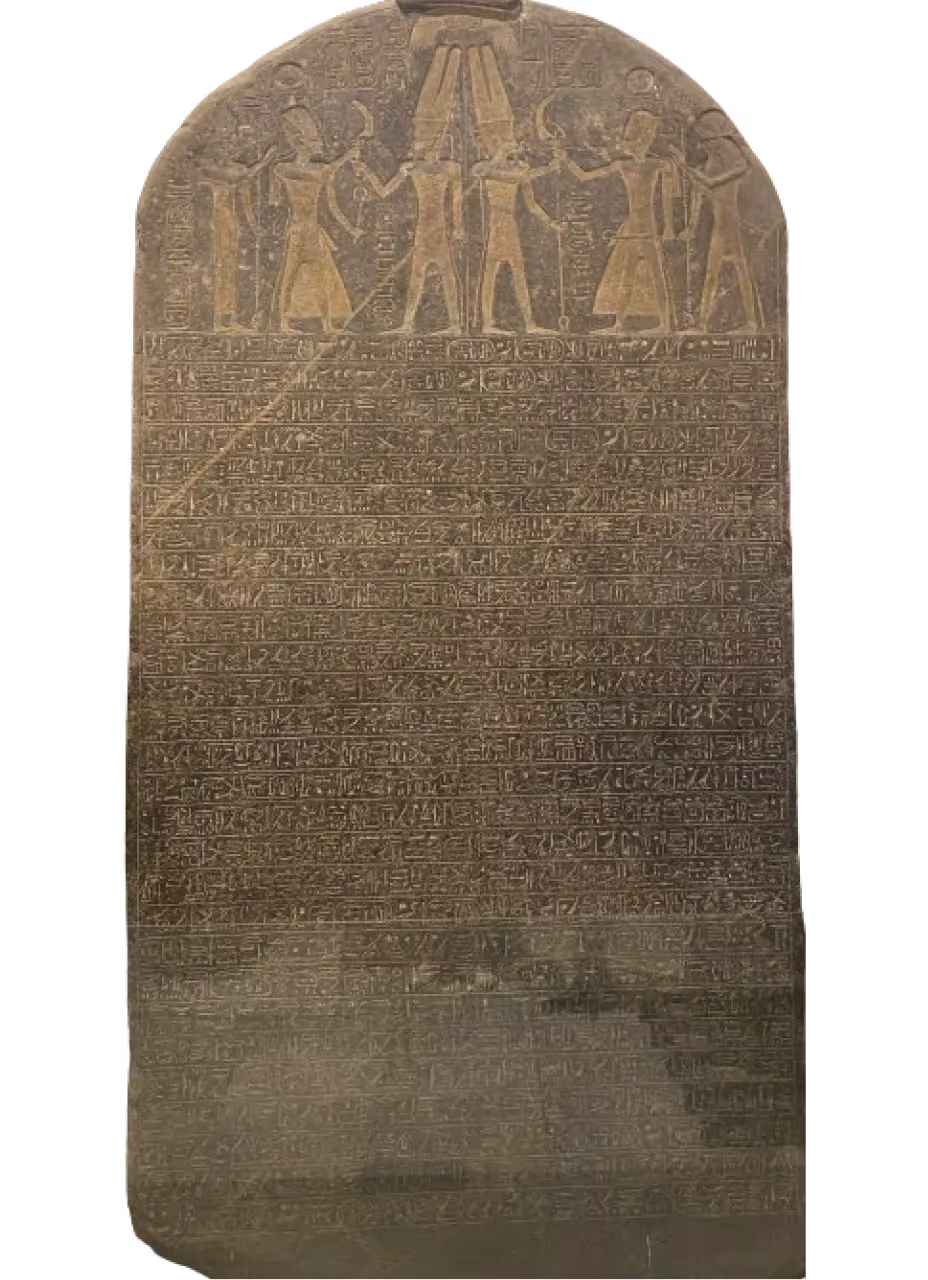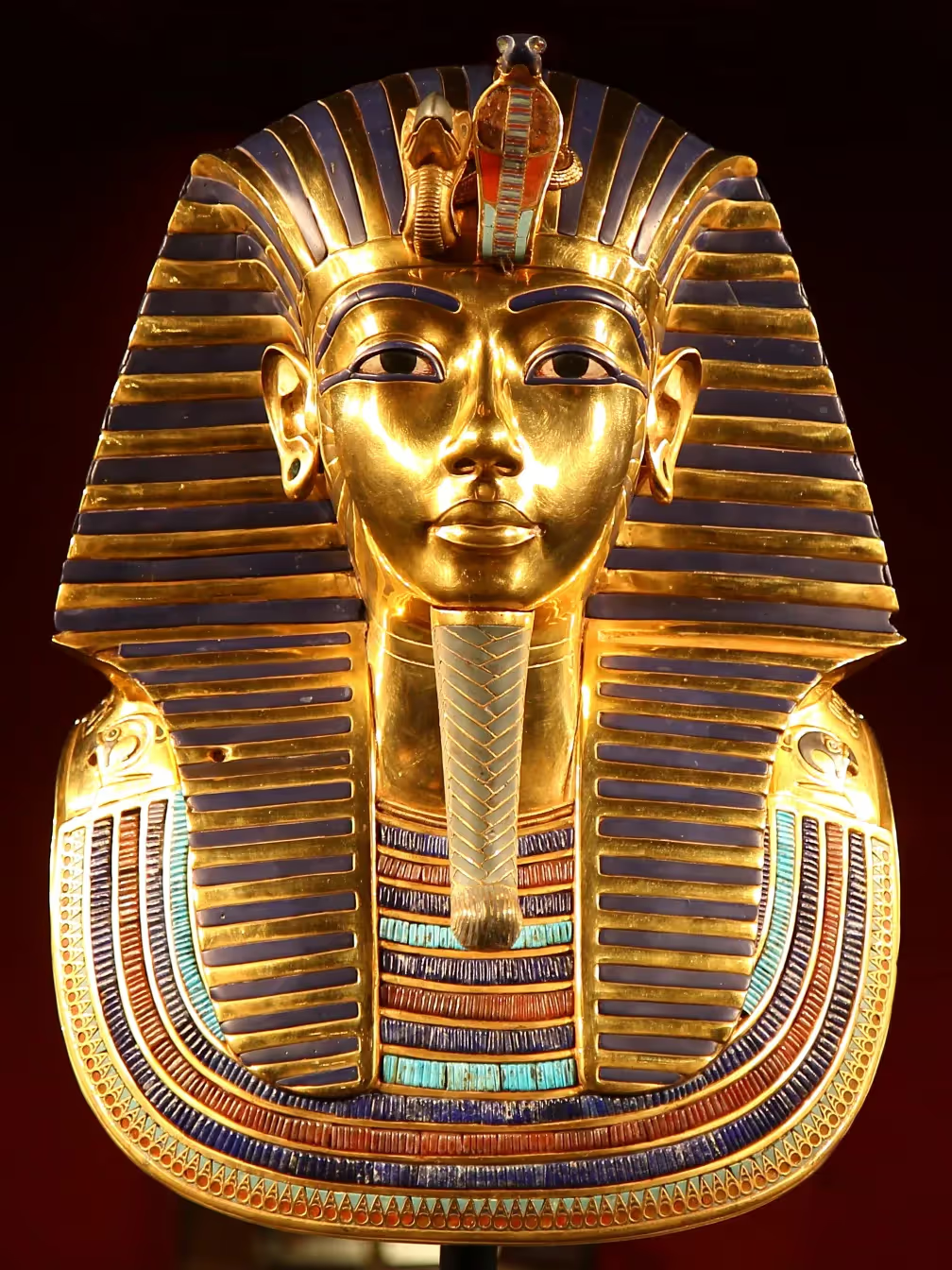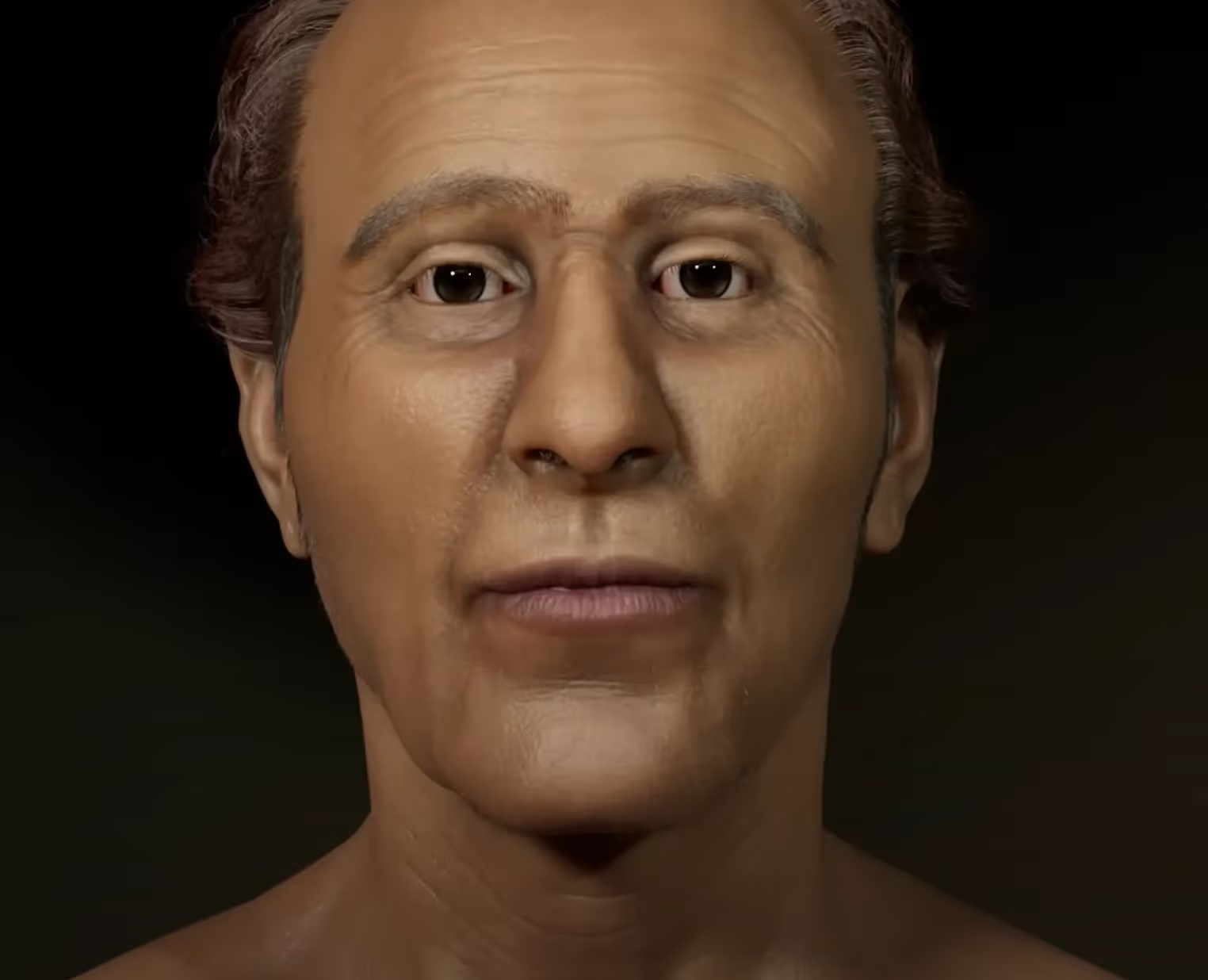The Merneptah Stele
Egyptian Pharaoh Merneptah recorded his conquest of the people "Israel" in 1207 BCE, on this victory stele, called The Merneptah Stele.
The inscription reads: “Canaan is plundered… Israel is laid waste; its grain is not.”
Since the Pharaoh of the Exodus has often been identified with Ramesses II, Merneptah was his successor, and because the stele names the people of Israel in the land of Canaan, the stele corroborates the biblical timeframe of the Israelite Settlement.
This stele is sometimes called the “Israel Stele” because it contains the earliest extra-biblical reference to Israel as a people. In Egyptian military descriptions, “its grain is not” is a frequently used description of conquered places and seems to refer to the common ancient practice of the victorious army ruining the crops.
Overview
“Canaan is plundered… Israel is laid waste, its grain is not.”
Egyptian Pharaoh Merneptah recorded his conquest of the people, "Israel" on this victory stele. Working backwards, if the Israelites wandered the wilderness for 40 years, as told in the Bible, then the Exodus could have occurred around 1250 BCE, during the reign of Rameses the Great (1279-1213 BCE).


















.avif)
